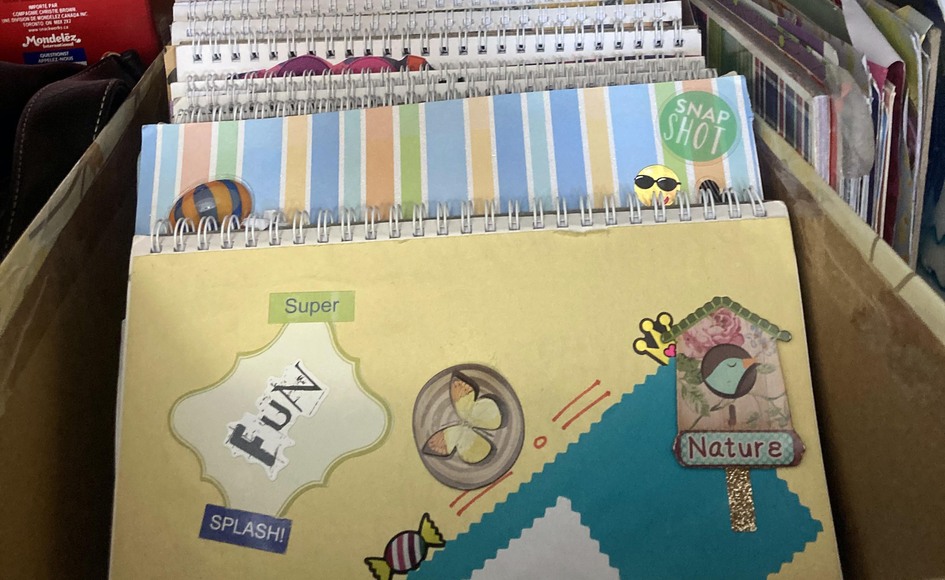Encased with artistic creations and photographs, a simple scrapbook can go a long way when it comes to helping young children form their identities.
These scrapbooks, developed by Rheyn Luha, a childcare assistant in the Family Treatment Program (FTP), not only give the child a piece of their experience to cherish but also models supportive caregiver/parent relationships within the program.
The FTP works to either prevent the placement of children out of their home or to assist families to unite after having a child in care.
“It’s all about creativity, organization skills, relaxation, the recollection of memories, and fulfillment,” Rheyn said. “I am so thankful when I see dozens of wonderful memories that would have been forgotten.”
The children in the program stay with the childcare staff when their parents are away for groups, appointments, and meetings that are designed to assist the parents in obtaining the knowledge, skills, and abilities to successfully reunify children to their care.
Staff looking after the children prepare activities, like crafts, and Rheyn collects all the children’s artistic creations to make a scrapbook collage.
The children sometimes get to design their own scrapbooks. On the first page, there is an ‘all about me’ section, listing the child’s age, favourites, friends, and likes.
Along with helping them form their identities, the scrapbooks also give children immense pleasure and bring out talent they may have never explored.
Andrea Rhodes, the clinical supervisor in the FTP, said the scrapbooks show the children’s clear development throughout their time in the program. It allows parents and their children to reflect on their growth.
“Children who have been out of parental care often have a difficult time connecting with their identities, and early development of identity is so rooted in experiences with one’s family,” Andrea explained. “With Rheyn creating a scrapbook for the children in the program to document their time here, this helps root them and give them the context of their own identities as young children.”
On top of this, Rheyn has also developed strong and supportive relationships with many of the parents who rely on childcare supports.
Some parents may be using childcare facilities for the first time, so it’s important they develop supporting and transparent relationships with alternate caregivers.
“Rheyn creating the scrapbook is part of the relationship between the FTP and the family, as the parents within the program feel safe and comfortable leaving their children in a facility that embodies many of the CARE principles Ranch Ehrlo uses (developmentally focused, trauma informed and attachment centred),” Andrea said.
Parents have greatly appreciated the scrapbooks.
“I’m so grateful and feel motivated at being a part of their timeline here in the Family Treatment program,” Rheyn said.


